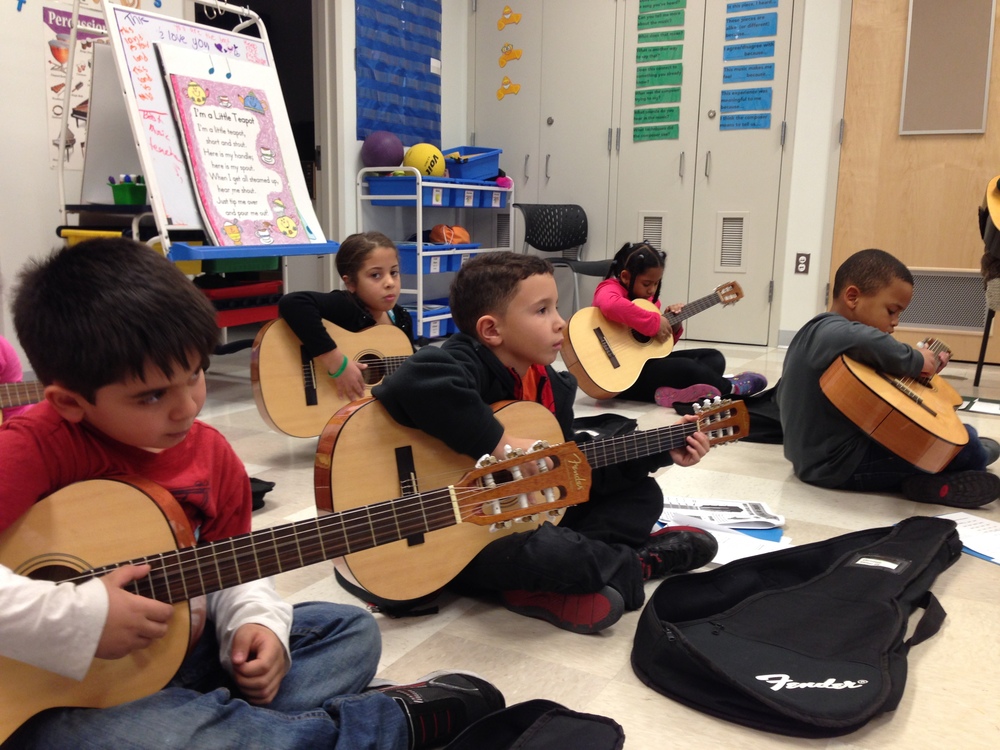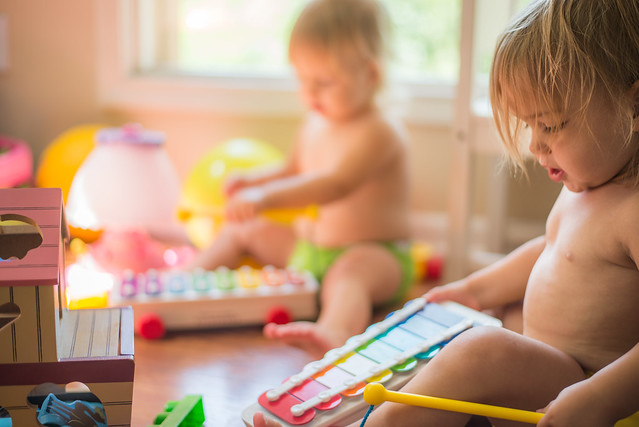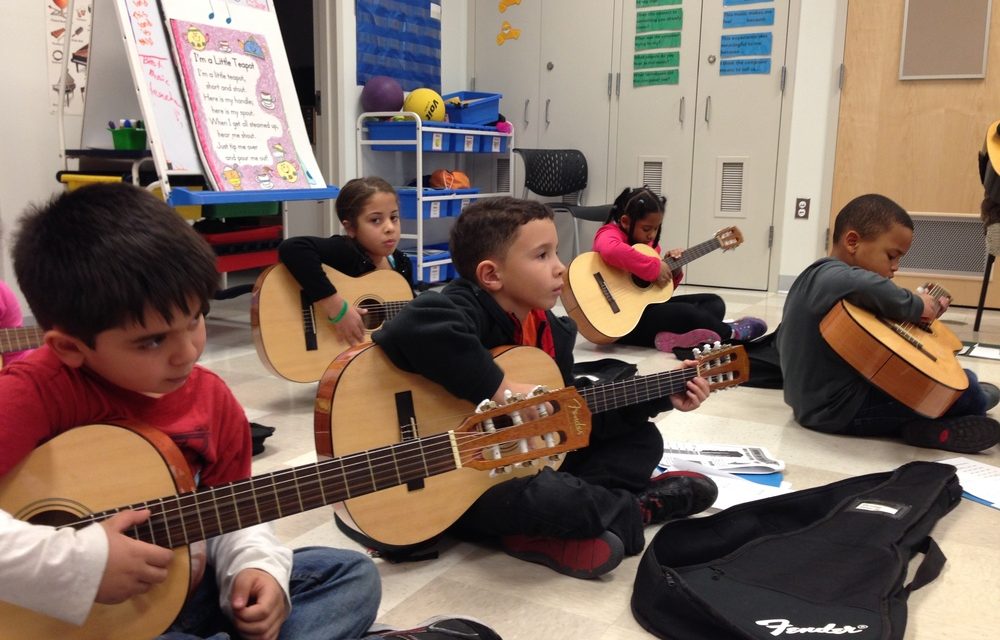
Not everyone can be the next Mozart, but every child should have the chance to explore and be inspired by music. Here are our tips on how to encourage young children to embrace music.

1. Make music together, make it fun.
Most children learn best through participation. There’s a reason why if you sing “If you’re happy and you know it…” you immediately want to clap your hands. Even simple nursery rhymes with actions can get children involved in making music. Through this song/game a child learns (without knowing they’re doing it) how to sing and clap in time, learning call and response, learning about musical cues and some may even show signs of singing in key!
So although we might have heard “heads, shoulders, knees and toes” a hundred times, it’s working wonders for our budding musicians.
Musical games like action songs are great because they give a simple framework around the music, and promote child participation. You can also use any musical game which has a clear and simple participation element, such as musical statues which promotes active listening.
–

Photo by Donnie Ray Jones (Creative Commons)
2. A child should feel safe exploring sound and expressing themselves.
As annoying as it gets (and here in a music shop that’s quite often) you should let children try out new sounds and just make noise. It could be bashing pans together, strumming a guitar, or trying to sing the highest note they can get. The experience of new sounds, and learning how to make those sounds that will give children confidence in music.
Having safe (and maybe expendable) musical toys and instruments around is the best way to achieve this. There are lots of percussion instruments designed for children which are ideal, or perhaps dig out that old guitar from the loft. At a young age it doesn’t have to play well, as long as the children get a chance to make some new and interesting sounds.
–

photo by Senior Airman Austin Harvill
3. Variety is important, but repetition is key
Young children will easily get tired or doing the same thing over and over again, so having a range of activities to do is important. Picking a handful of things each time from a dozen or so is ideal.
On the other hand it is through repetition that we see development. If you’re repeating these same dozen activities over a long period there will come a time when a child can just do it. Having this sense of achievement (and the appropriate encouragement) can be a great way to inspire a young musician.
–
We’d love to hear what you do to inspire a young musical child. Let us know in the comments!






